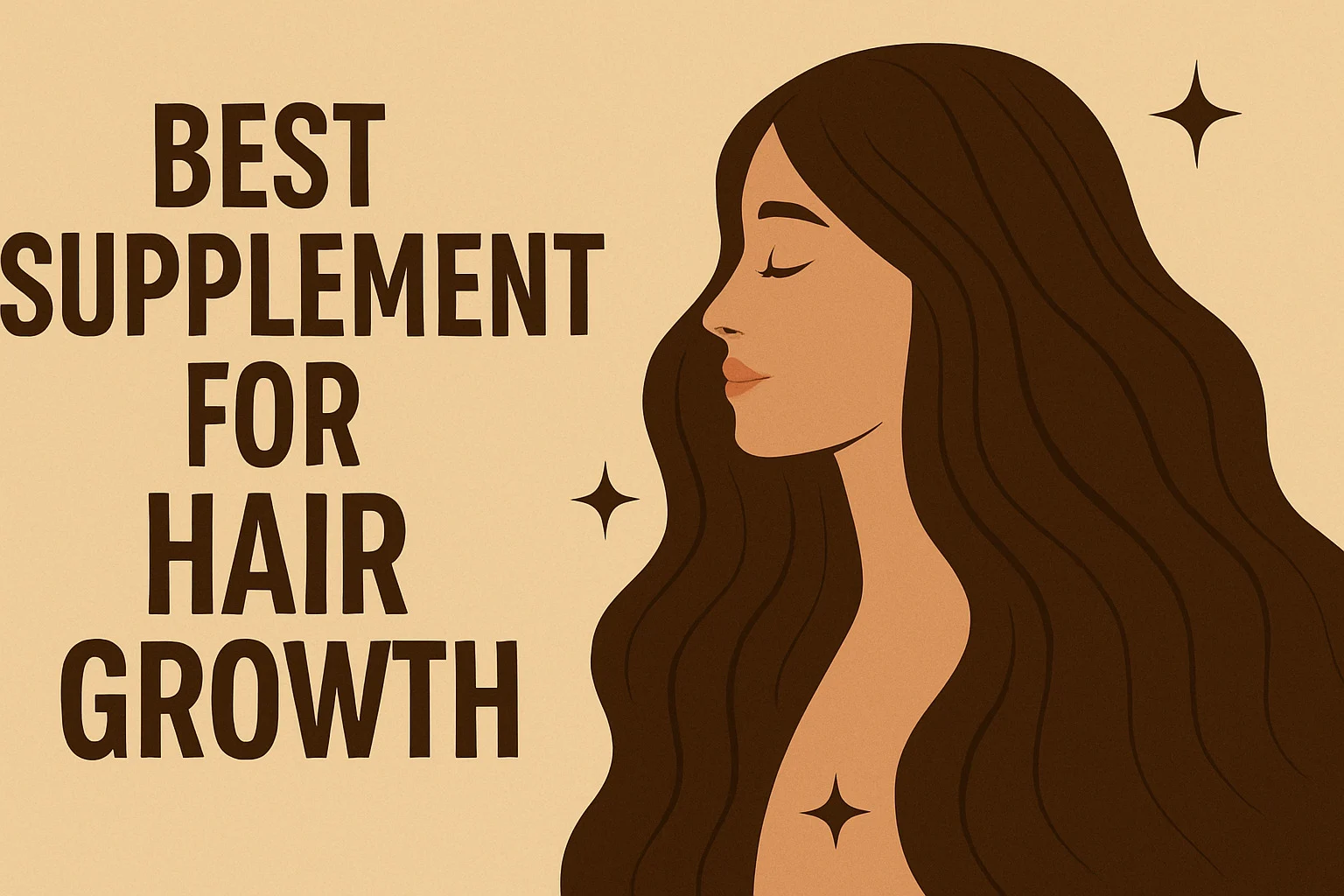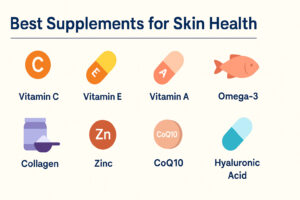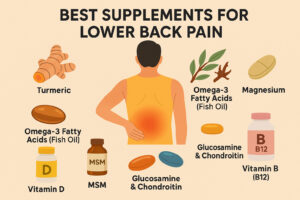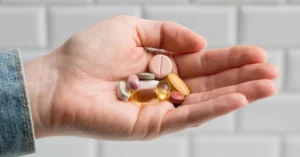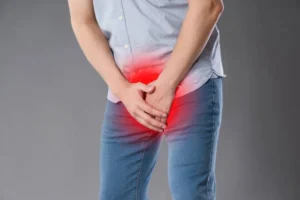Hair is more than just a part of our appearance — it’s closely tied to how we feel about ourselves. Thick, shiny, and healthy hair is often associated with youth, vitality, and confidence. Yet, many people struggle with hair thinning, slow growth, or breakage, leaving them frustrated and searching for effective solutions.
Daily hair care products like shampoos, conditioners, and oils are helpful, but they often work only on the surface. True hair transformation begins at the root — literally — by nourishing hair follicles from within.
This is where the best supplement for hair growth plays a role. By supplying essential vitamins, minerals, and plant extracts directly to your body, these supplements can help strengthen strands, reduce shedding, and promote faster growth. In this guide, we’ll explore the causes of slow hair growth, the most effective ingredients, top-rated supplements in 2025, and tips to get the best results.
In This Article
2. What Causes Hair Loss and Slow Growth?
Several factors can contribute to hair thinning and poor growth, and often, they work together. Some of the most common include:
- Nutrient deficiencies: Hair growth is a complex biological process that relies on a steady supply of essential nutrients. Just like your skin and nails, hair is constantly renewing itself, which means it needs a consistent flow of vitamins, minerals, and proteins to stay strong and healthy. When the body does not receive adequate nutrients, it prioritises vital organs over non-essential functions like hair production, leading to thinning, shedding, and slower growth.
Key Nutrients Linked to Healthy Hair
Several nutrients play a direct role in supporting hair structure, follicle activity, and scalp health. A deficiency in any of these can cause noticeable changes in hair texture, thickness, and growth rate.
1. Biotin (Vitamin B7)
Biotin is crucial for keratin production, the protein that forms the structure of hair. Low levels can result in brittle strands and increased shedding. While severe biotin deficiency is rare, mild shortages can still impact hair quality.
2. Iron
Iron deficiency, particularly common in women, is one of the leading causes of hair thinning. Iron supports oxygen delivery to hair follicles, and without it, strands become weak and prone to falling out.
3. Vitamin D
Vitamin D plays a role in activating hair follicles and maintaining the growth cycle. A lack of this vitamin can cause dormant follicles, leading to slow or stalled hair growth.
4. Zinc
Zinc supports cell repair and regulates scalp oil production. Deficiency can cause hair loss, scalp irritation, and delayed follicle recovery after shedding.
5. Protein
Hair is made of protein, so an inadequate protein intake can slow growth and cause thinning. People on restrictive diets may unknowingly limit their protein consumption, affecting hair health.
6. Omega-3 Fatty Acids
These healthy fats nourish the scalp, reduce inflammation, and support hair elasticity. A lack of omega-3s can lead to dry, brittle strands and a flaky scalp.
Causes of Nutrient Deficiencies Affecting Hair
Poor diet choices: Highly processed foods often lack essential vitamins and minerals.
Medical conditions: Digestive disorders like IBS or celiac disease can affect nutrient absorption.
Hormonal changes: Pregnancy, menopause, and thyroid imbalances can deplete nutrient stores.
Stress and lifestyle factors: Chronic stress can affect appetite and digestion, leading to deficiencies.
Strict diets: Vegan, vegetarian, or low-calorie diets without proper planning can limit hair-friendly nutrients.
Addressing Nutrient Deficiencies for Better Hair
If hair loss or thinning is linked to nutrient deficiencies, the solution involves a two-step approach: improving diet and considering supplementation.
Dietary Improvements
Eat a balanced mix of lean proteins, whole grains, fruits, and vegetables.
Include iron-rich foods like spinach, lentils, and lean red meat.
Add fatty fish, chia seeds, or walnuts for omega-3 intake.
Choose dairy, eggs, or fortified plant milks for vitamin D.
Supplements for Hair Health
A high-quality hair growth supplement can fill nutritional gaps, ensuring consistent delivery of key vitamins and minerals to the follicles. Look for products containing biotin, iron, zinc, vitamin D, and collagen. - Hormonal imbalances:Hormones are chemical messengers that regulate countless processes in the body, including the hair growth cycle. When hormone levels fluctuate or fall out of balance, they can disrupt the natural rhythm of hair growth, leading to thinning, shedding, or slower regrowth. While occasional changes are normal, prolonged imbalances can have a lasting impact on hair health if left unaddressed.
How Hormones Influence Hair
Hair growth occurs in cycles: the growth phase (anagen), the resting phase (telogen), and the shedding phase (catagen). Hormones help determine how long hair stays in the growth phase and how quickly it transitions to the next stages. Certain hormones encourage healthy growth, while others, when elevated, can contribute to hair loss.
Key hormones linked to hair health include:
Androgens (such as dihydrotestosterone, or DHT): In excess, these can shrink hair follicles, especially in pattern hair loss.
Oestrogen: Supports prolonged growth phases; lower levels can cause increased shedding.
Progesterone: Balances the effects of androgens; low levels may contribute to hair thinning.
Cortisol: The stress hormone; high levels can disrupt the hair growth cycle.
Thyroid hormones: Regulate metabolism and cellular function; both high and low levels can cause hair loss.
Common Causes of Hormonal Imbalances Affecting Hair
Menopause
The drop in oestrogen and progesterone during menopause often leads to thinning hair, especially around the crown.
Pregnancy and Postpartum Changes
Pregnancy hormones keep hair in the growth phase longer, creating fuller hair. After birth, hormone levels drop rapidly, triggering temporary shedding.
Polycystic Ovary Syndrome (PCOS)
Higher androgen levels in women with PCOS can lead to excess facial hair and thinning on the scalp.
Thyroid Disorders
Both hypothyroidism and hyperthyroidism can disrupt the hair cycle, causing brittle, sparse strands.
Chronic Stress
Long-term stress raises cortisol levels, which can lead to telogen effluvium, a condition where more hairs enter the shedding phase.
Addressing Hormonal Hair Loss
The first step in addressing hormone-related hair changes is identifying the underlying imbalance. This often involves a combination of medical testing, lifestyle changes, and targeted treatments.
Lifestyle Support
Prioritise sleep to help regulate cortisol and overall hormone function.
Include healthy fats like avocado, nuts, and olive oil to support hormone production.
Engage in moderate exercise to improve circulation and reduce stress.
Medical and Supplement Support
Speak with a healthcare provider about hormone testing.
Consider supplements that support hormone balance and hair health, such as biotin, vitamin D, zinc, and saw palmetto.
For thyroid-related issues, follow medical guidance for managing hormone levels.
Use hair growth supplements that address both nutritional and hormonal factors. - Stress and lifestyle factors: Hair growth may seem purely genetic, but lifestyle choices and stress levels play a much bigger role than many realise. The way you eat, sleep, work, and handle pressure directly affects your hair’s ability to grow strong and healthy. Even if you are using the best supplement for hair growth, poor lifestyle habits or chronic stress can slow your progress.
How Stress Affects the Hair Growth Cycle
Stress triggers the body to release cortisol, a hormone designed to help in short-term challenges. However, when cortisol remains elevated for extended periods, it can disrupt the hair growth cycle.
Effects of high stress levels on hair include:
Telogen effluvium: More hairs enter the shedding phase, leading to noticeable thinning.
Weakened follicles: Reduced nutrient delivery to the scalp.
Slower growth rate: Follicles take longer to return to the growth phase.
Increased breakage: Stress can lead to unhealthy habits like aggressive brushing or neglecting proper hair care.
Lifestyle Habits That Influence Hair Health
Hair health is a reflection of overall well-being. Certain everyday choices can either support or weaken the growth process.
Negative lifestyle habits that harm hair:
Poor diet – Relying on processed or nutrient-poor foods starves follicles of essential vitamins.
Inadequate hydration – Dehydrated hair is more brittle and prone to breakage.
Lack of sleep – Reduced cell repair and slower growth during rest cycles.
Smoking – Limits oxygen flow to the scalp and damages follicles.
Excessive heat styling – Weakens hair structure, causing long-term damage.
Positive lifestyle habits for healthy hair:
Eating a balanced, nutrient-rich diet.
Drinking enough water daily.
Getting 7–8 hours of quality sleep.
Protecting hair from heat and environmental damage.
Managing stress through healthy outlets.
Practical Tips to Reduce Stress and Protect Hair
Managing stress and adjusting lifestyle choices can significantly improve the effects of any hair growth supplement.
1. Incorporate stress-reducing activities
Yoga, meditation, or even daily walks can help balance cortisol levels.
2. Schedule regular breaks
Long hours of work without rest can lead to both mental fatigue and physical tension, affecting hair growth.
3. Maintain consistent meal times
Stable blood sugar levels help prevent hormonal fluctuations that may trigger shedding.
4. Use protective hair care practices
Gentle brushing, heat protectants, and minimal chemical treatments can preserve hair strength.
5. Stay socially connected
Healthy relationships and emotional support lower overall stress levels.
The Role of Supplements in a Busy Lifestyle
For people with demanding schedules, getting all necessary nutrients from food alone can be challenging. A targeted hair growth supplement ensures your follicles still receive essential vitamins and minerals, even during hectic times. While supplements can’t replace healthy habits, they can provide a safety net to support consistent hair growth when life gets stressful. - Damage from styling and environment: While genetics and health play key roles in hair growth, external factors like styling habits and environmental exposure can also have a major impact. Frequent heat styling, chemical treatments, and pollution can weaken the hair structure, leading to breakage, thinning, and slower regrowth. Even the best supplement for hair growth can only work effectively if these damaging influences are minimised.
The Impact of Heat Styling on Hair
Blow dryers, curling irons, and straighteners use high temperatures to shape hair. Although they create instant style, they also weaken the cuticle — the protective outer layer of each strand.
Effects of excessive heat styling:
Loss of natural moisture, leaving hair dry and brittle
Weakening of the protein structure, causing breakage
Split ends that travel up the strand and shorten overall length
Reduced elasticity, making hair more prone to snapping
Using heat occasionally with proper protection is fine, but daily use can cause long-term damage that slows growth.
Chemical Treatments and Their Consequences
Hair colouring, bleaching, perming, and relaxing rely on strong chemicals to change the hair’s structure. While these treatments can be part of personal style, they strip away natural oils and weaken the bonds that give hair its strength.
Potential damage from chemical treatments:
Thinning and increased fragility
Breakage before hair reaches its full length
Scalp irritation, which can hinder follicle function
Altered texture, making hair harder to manage
Limiting chemical treatments or spacing them out can help preserve hair health.
Environmental Factors That Harm Hair
Daily exposure to the environment can also take its toll on hair health. Sunlight, wind, and pollution all contribute to gradual damage.
Common environmental stressors:
UV radiation – Breaks down hair proteins and fades colour.
Air pollution – Particles can clog scalp pores, reducing nutrient absorption.
Hard water – Leaves mineral deposits that make hair rough and dull.
Extreme weather – Heat, humidity, and cold can strip moisture from hair.
Protecting hair from these elements is essential for maintaining strength and shine.
Protective Measures to Reduce Damage
Preventing damage from styling and environmental factors doesn’t mean giving up your favourite looks. It’s about making small, consistent adjustments.
Practical tips:
Use a heat protectant spray before styling.
Keep heat tools at the lowest effective temperature.
Wear hats or scarves in direct sunlight.
Rinse hair with filtered or bottled water if you live in a hard-water area.
Apply leave-in conditioners or oils to lock in moisture.
Space out chemical treatments to allow hair recovery.
The Role of Supplements in Repair
A high-quality hair growth supplement can help repair damage from the inside out by strengthening hair with vitamins, minerals, and proteins. Nutrients like biotin, collagen, and antioxidants support the production of strong, flexible strands that are more resistant to heat and environmental stress.
Understanding these triggers can help you choose a hair growth supplement that targets your specific needs.
3. Why Choose a Hair Growth Supplement?
While a balanced diet is essential, it can be challenging to consistently consume all the nutrients needed for healthy hair. Supplements bridge this gap by providing concentrated forms of hair-supporting nutrients.
Benefits include:
- Targeted nutrition: Directly feeds the hair follicles.
- Supports scalp health: Improves circulation and hydration.
- Complements topical treatments: Works alongside serums and oils for better results.
- Fills nutritional gaps: Ensures the body gets what it needs even on busy days.
With consistent use, the best supplement for hair growth can lead to noticeable improvements in both hair thickness and growth speed.
4. Key Ingredients in the Best Supplement for Hair Growth
The effectiveness of a supplement depends on its formula. Look for these key ingredients:
1. Biotin – Strengthens keratin structure for stronger strands.
2. Vitamin D – Supports follicle health and growth cycle.
3. Zinc – Regulates oil production and supports cell repair.
4. Iron – Prevents hair shedding caused by anaemia.
5. Collagen – Improves hair elasticity and strength.
6. Saw Palmetto – Blocks DHT, a hormone linked to hair loss.
7. Horsetail Extract – Rich in silica for stronger, shinier hair.
8. MSM (Methylsulfonylmethane) – Promotes collagen and keratin production.
A supplement containing a combination of these can address multiple hair concerns at once.
5. How the Best Supplement for Hair Growth Works
A high-quality hair growth supplement works by improving the internal environment for hair production. Here’s how:
- Nourishes follicles with vitamins and minerals.
- Improves scalp blood flow, delivering more oxygen and nutrients.
- Strengthens strands to prevent breakage and split ends.
- Balances hormones that impact hair growth.
- Reduces inflammation in the scalp to maintain a healthy growth cycle.
When taken consistently, these supplements help ensure that each strand grows stronger, thicker, and healthier.
6. Benefits of Using the Best Supplement for Hair Growth
Adding a hair growth supplement to your daily routine can offer benefits beyond just appearance:
- Thicker, fuller-looking hair.
- Reduced hair shedding over time.
- Stronger strands that resist breakage.
- Improved scalp hydration and comfort.
- Support for nails and skin health.
- Long-term improvement in hair density.
These results usually become noticeable within 8 to 12 weeks, although individual experiences may vary.
7. Top 5 Best Supplements for Hair Growth in 2025
| Product Name | Key Ingredients | Benefits | Price Range |
|---|---|---|---|
| HairBloom Pro | Biotin, Saw Palmetto, Vitamin D | Reduces shedding, boosts growth | $35-$45 |
| NutraHair Plus | Collagen, MSM, Zinc | Strengthens hair, improves shine | $40-$50 |
| Follicle Fuel | Iron, Horsetail Extract, Vitamin C | Improves thickness, supports scalp | $30-$40 |
| GrowVita Max | Biotin, Vitamin E, Omega-3 | Nourishes follicles, hydrates scalp | $25-$35 |
| Keratin Boost | Keratin, MSM, Silica | Repairs damage, enhances strength | $45-$55 |
These products are chosen based on ingredient quality, customer reviews, and value for money.
8. How to Choose the Right Supplement for You
When selecting the best supplement for hair growth, consider:
- Your budget: Quality supplements are available across price ranges.
- Ingredient list: Look for clinically studied nutrients.
- Your lifestyle: Some prefer capsules, others gummies or powders.
- Specific needs: Women may benefit from iron-rich formulas, while men may focus on DHT blockers.
- Reputation of the brand: Choose a brand with positive feedback and transparent sourcing.
Reading labels and customer experiences can help you avoid low-quality products.
9. Tips to Maximise Hair Growth with Supplements
To see the best results from your hair growth supplement:
- Take it consistently at the same time each day.
- Pair it with a protein-rich diet.
- Limit heat styling and chemical treatments.
- Stay hydrated.
- Manage stress through exercise or meditation.
- Massage your scalp regularly to stimulate circulation.
Consistency and patience are key to noticeable improvements.
10. Potential Side Effects and Safety Tips
While most hair growth supplements are safe, you should be aware of possible effects:
- Mild digestive discomfort in the first week.
- Allergic reactions to certain herbs or ingredients.
- Possible interaction with medications — check with your doctor.
Safety tips:
- Follow the recommended dosage.
- Store in a cool, dry place.
- Avoid taking multiple supplements with overlapping ingredients to prevent excess intake.
11. Real User Testimonials
Emily R., California – “After 3 months on HairBloom Pro, my hair feels thicker and my ponytail looks fuller. I also see less hair in my brush.”
Rajesh K., Mumbai – “NutraHair Plus gave me visible results in 10 weeks. My hairline looks healthier, and my scalp feels better.”
Sophie L., London – “I was sceptical, but GrowVita Max helped reduce my shedding drastically. My hair feels smoother and shinier.”
Also read: Best Supplement for Weight Gain
12. Final Words
The best supplement for hair growth is more than just a beauty product — it’s a tool to support your hair’s health from the inside out. By choosing a product with proven ingredients, taking it consistently, and supporting it with healthy lifestyle habits, you can enjoy thicker, healthier, and more vibrant hair.
Whether you’re struggling with thinning, want to grow your hair longer, or simply wish to keep it strong, a targeted hair growth supplement can help you achieve your goal. The key is to start today, stay consistent, and allow your hair the time it needs to transform.

